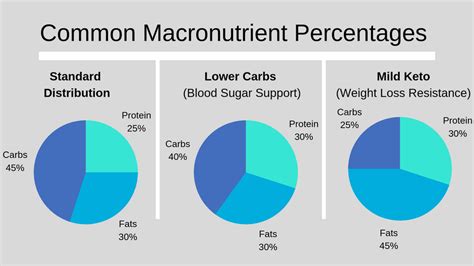What’s the optimal meal timing and macros for peak daily energy and focus?

Unlocking Your Full Potential Through Strategic Eating
In a world demanding constant performance, optimizing your physical and mental energy is paramount. The food you eat, and more importantly, when you eat it, plays a critical role in sustaining focus, preventing energy slumps, and enhancing overall cognitive function. It’s not just about consuming calories; it’s about strategically fueling your body and brain to operate at their peak.
Understanding the interplay between meal timing and macronutrient ratios is key to unlocking consistent energy and sharp focus throughout your day. Let’s delve into the science-backed strategies that can transform your daily performance.

The Science Behind Sustained Energy and Focus
Your body’s primary energy source comes from glucose, derived from carbohydrates. However, how quickly and steadily this glucose enters your bloodstream significantly impacts your energy levels and cognitive function. Rapid spikes followed by crashes, often from highly refined carbohydrates, can lead to the dreaded ‘brain fog’ and fatigue.
Blood Sugar Regulation
Consistent energy and focus depend on stable blood sugar. When blood sugar levels fluctuate wildly, your brain’s ability to concentrate diminishes, and you experience energy dips. Strategic meal timing and macronutrient balance help regulate this, providing a steady supply of glucose without the dramatic peaks and valleys.
Neurotransmitter Production
Beyond energy, macronutrients are precursors for neurotransmitters, the chemical messengers in your brain that control mood, alertness, and focus. For instance, protein provides amino acids vital for dopamine and serotonin synthesis, both crucial for motivation and well-being.
Optimal Meal Timing Strategies
Timing your meals isn’t about rigid rules, but about creating a rhythm that supports your body’s natural circadian clock and metabolic demands.
Breakfast: Fueling Your Day
Aim to consume breakfast within 1-2 hours of waking. This signals your metabolism to kickstart and replenishes glycogen stores after your overnight fast. A balanced breakfast sets the tone for stable blood sugar throughout the morning.
Lunch: Sustaining Midday Performance
Ideally, lunch should be eaten 4-5 hours after breakfast. This timing prevents severe hunger pangs and provides a steady fuel source for afternoon productivity. Avoiding heavy, carb-dense lunches can prevent post-lunch drowsiness.

Dinner: Evening Recovery & Sleep
Consume dinner 3-4 hours before bedtime. Eating too close to sleep can interfere with digestion and sleep quality. Focus on easily digestible foods that support recovery without overtaxing your digestive system.
Snacks: Bridging the Gaps
If needed, incorporate 1-2 small, balanced snacks between meals. These should be strategic fuel-ups, not indulgence. Think a handful of nuts, a piece of fruit with nut butter, or Greek yogurt.
Macronutrients for Peak Performance
The right balance of carbohydrates, proteins, and fats is crucial for sustained energy and cognitive function.
Carbohydrates: The Primary Fuel
Opt for complex carbohydrates (whole grains, vegetables, fruits, legumes) which release glucose slowly and steadily into the bloodstream. These provide sustained energy without the crash associated with simple sugars. Aim for 45-60% of your total daily calories from complex carbs.
Protein: Building Blocks & Satiety
Protein is essential for muscle repair, hormone production, and, crucially, satiety. Including protein in every meal slows down glucose absorption, helping to stabilize blood sugar. Lean meats, fish, eggs, dairy, and plant-based proteins like legumes and tofu are excellent choices. Aim for 20-30% of your daily calories from protein.

Healthy Fats: Sustained Energy & Brain Health
Healthy fats, such as those found in avocados, nuts, seeds, olive oil, and fatty fish, are vital for brain function, hormone production, and provide a long-lasting energy source. They also contribute to satiety. Aim for 20-35% of your daily calories from healthy fats.
Hydration and Micronutrients: Often Overlooked
Don’t underestimate the power of water. Even mild dehydration can impair cognitive function, mood, and energy levels. Aim to drink plenty of water throughout the day. Furthermore, a diet rich in a variety of fruits, vegetables, and whole foods ensures an adequate intake of essential vitamins and minerals, which act as co-factors in numerous metabolic processes, including energy production and neurotransmitter synthesis.

Individual Variability and Listening to Your Body
While general guidelines are helpful, remember that optimal nutrition is highly individual. Factors like your activity level, genetics, stress, and specific health conditions will influence your ideal meal timing and macro ratios. Experiment, pay attention to how different foods and timings make you feel, and adjust accordingly. Keeping a food and mood journal can be an excellent tool for identifying what works best for your unique physiology.

Conclusion
Achieving peak daily energy and focus isn’t about restrictive dieting; it’s about intelligent fueling. By strategically timing your meals and balancing your macronutrients – emphasizing complex carbohydrates, lean proteins, and healthy fats – you can stabilize blood sugar, optimize neurotransmitter production, and sustain high levels of cognitive performance throughout your day. Combine this with adequate hydration and micronutrient intake, and you’ll be well on your way to unlocking your most energized and focused self.








